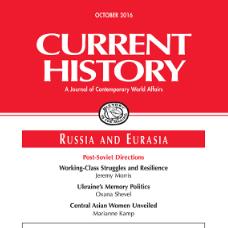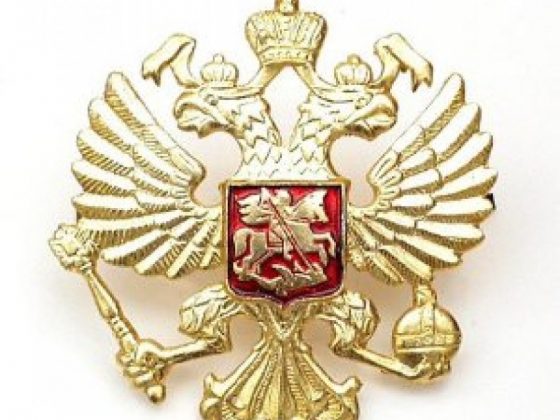(Current History) What Drives Moscow’s Military Adventurism? (by Pavel Baev)—Russia’s propensity to use military force as an instrument of policy—and even as an instrument of choice—has become increasingly pronounced over the past two and a half years. Since the March 2014 arrival of the so-called “green men” (Russian special-operations forces wearing no insignia) in Crimea, every week brings news of artillery duels in the Donbas war zone in eastern Ukraine, or airstrikes in Syria, or mock attacks on US Navy ships in the Baltic or Black seas. Yet the costs of these interventions are mounting, while the political returns on such efforts at projecting military power are clearly diminishing— raising more questions about their rationale and sustainability. […]
The Battle for Historical Memory in Postrevolutionary Ukraine (by Oxana Shevel)—The triumph of the 2014 Euromaidan protests in Ukraine raised many hopes both domestically and internationally. Yet today, two and a half years since the pro-European uprising in Kiev’s central Maidan Nezalezhnosti, or Independence Square, led to the overthrow of President Viktor Yanukovych, many goals of the protesters remain unrealized. Some progress has been made on issues such as the prosecution of corrupt politicians, judicial reform, and other measures to establish transparency and accountability for the powerful. But the overall results to date from efforts to curb corruption, overhaul the economy, and integrate with Europe are disappointing for both Ukrainian citizens and supporters of the reform movement abroad. There is one area, however, where post-Euromaidan Ukraine is looking very different from the nation that existed before the 2014 uprising: the politics of memory and, more broadly, the politics of national identity. […]
Read More © Current History (October 2016)











